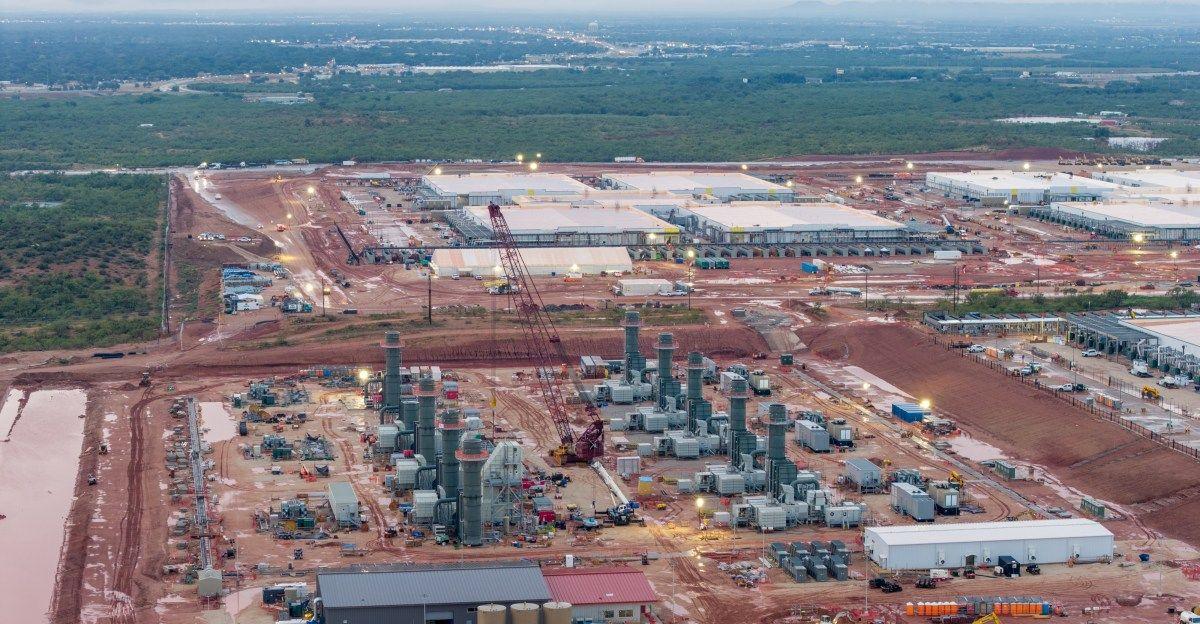Energy Transfer signs its first long-term agreement to supply natural gas to CloudBurst's AI-focused data center, signaling a new era of energy demand driven by artificial intelligence infrastructure.
Energy Transfer Secures Landmark Deal with AI Data Center
Energy Transfer, a leading natural gas pipeline operator, has taken a significant step towards capitalizing on the growing demand for natural gas driven by artificial intelligence (AI) infrastructure. The company recently announced a long-term agreement to supply natural gas to CloudBurst's flagship AI-focused data center development in Central Texas
1
.The Deal: Powering AI with Natural Gas
Under the agreement, Energy Transfer will provide up to 450,000 MMBtus per day of natural gas to CloudBurst's Next-Gen Data Center Campus near San Marcos, Texas. This volume is sufficient to generate approximately 1.2 gigawatts of direct electricity, enough to power about 750,000 homes for a year
1
. The 10-year gas supply agreement is contingent on CloudBurst reaching a Final Investment Decision (FID) with its customer, expected later this year.AI's Impact on Energy Demand
The deal highlights the growing energy demands of AI technology. Specialized chips required to run AI systems consume substantial amounts of electricity, leading forecasters to predict an acceleration in natural gas demand for power plants supporting AI data centers
1
. This trend presents a significant opportunity for pipeline companies like Energy Transfer to increase gas transportation volumes.Energy Transfer's Strategic Position
Energy Transfer's vast pipeline network, spanning 105,000 miles, and large gas storage capacity of 236 billion cubic feet, position the company favorably to meet the increasing demand
1
. Tom Long, Co-CEO of Energy Transfer, revealed in a recent conference call that the company has received requests to connect to approximately 45 new power plants and over 40 prospective data centers across multiple states1
.Future Growth Potential
The CloudBurst deal marks Energy Transfer's first commercial agreement to directly supply gas to a data center, but it's unlikely to be the last. The company is in discussions with several other data center developers about potential gas supply agreements
1
. To support this growing demand, Energy Transfer has approved the $2.7 billion Hugh Brinson Pipeline project, which will transport 1.5 Bcf/d of gas from the Permian Basin to the Dallas area1
.Related Stories
Financial Implications
The expected increase in gas volumes is anticipated to boost Energy Transfer's cash flow, potentially supporting the company's goal of growing its 6.4%-yielding payout by 3% to 5% per year
1
. This positions Energy Transfer as an attractive option for investors looking to capitalize on the AI boom, particularly those comfortable with receiving Schedule K-1 tax forms associated with Master Limited Partnerships (MLPs).Broader Industry Impact
Energy Transfer's move into AI-driven gas supply reflects a larger trend in the energy sector. As AI technology continues to evolve and expand, it's likely to reshape energy demand patterns, creating new opportunities and challenges for traditional energy companies and infrastructure providers.
References
Summarized by
Navi
Related Stories
Recent Highlights
1
Pentagon threatens to cut Anthropic's $200M contract over AI safety restrictions in military ops
Policy and Regulation

2
ByteDance's Seedance 2.0 AI video generator triggers copyright infringement battle with Hollywood
Policy and Regulation

3
OpenAI closes in on $100 billion funding round with $850 billion valuation as spending plans shift
Business and Economy








